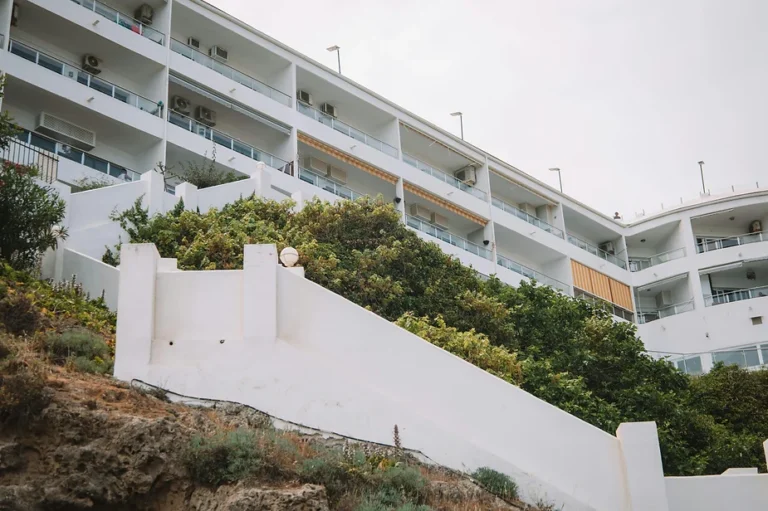Introduction
Timeshare properties offer a unique niche within the real estate industry, blending aspects of vacation ownership with property sales. For real estate agents, the commission structure when selling timeshare properties differs from traditional home sales. Yet, the core principle remains the same: agents earn a commission as a percentage of the sale price. However, the commission rates can vary significantly based on whether the timeshare is newly sold by a developer or being resold on the secondary market. This article delves into how commissions work in timeshare transactions, highlighting key factors such as commission rates, developer sales vs. resale, and agent payment structure.
What Is a Timeshare Property?
Before diving into the specifics of commission, it’s essential to understand what a timeshare property is. A timeshare allows multiple buyers to own a share of a vacation property. Instead of owning the entire property, each buyer owns the right to use the property for a specific period—often one or two weeks each year. Timeshare properties are most commonly associated with vacation spots, such as beach resorts or ski lodges, and provide buyers with an affordable way to enjoy a vacation property without the financial burden of full ownership.
There are generally two ways to buy a timeshare:
-
New Developer Sales—These are new timeshares sold directly by a developer. Buyers are often the first to purchase these shares, and developers typically provide various incentives to encourage sales.
-
Resales – In the secondary market, individuals who no longer want their timeshare sell it to new buyers. Resale prices are usually lower, as timeshares tend to depreciate.
Commission Rates for Timeshare Properties
Real estate agents specialising in timeshares earn their income through commissions, just as they would when selling traditional properties. However, the commission rates in timeshare transactions differ from typical residential sales.
-
Developer Sales: When an agent sells a timeshare directly from a developer, they generally receive a higher commission, ranging from 6% to 10% of the sale price. The higher commission rates reflect that these new properties are being sold at a premium, often with additional marketing and sales support from the developer. Developers rely on agents to bring in buyers and are willing to offer higher commissions to incentivize agents to sell their timeshares.
For example, if a timeshare is sold for $30,000 and the commission rate is 10%, the agent would earn $3,000. This is a substantial commission, especially considering the sales volume an agent might achieve in a busy timeshare market.
-
Resale Market: Commissions are lower on the resale side, often between 3% and 5% of the sale price. Resale prices are typically lower than new timeshare prices, as timeshares tend to depreciate over time. As a result, an agent’s commission on a resale transaction will also be lower. Despite this, many agents work in the resale market because these sales tend to happen more frequently, offering the opportunity to make up for the lower commission with higher transaction volume.
For instance, if an agent sells a timeshare for $15,000 on the resale market and the commission rate is 4%, they would earn $600 from that transaction. While this is lower than the commission from a developer sale, the resale market allows agents to close multiple deals in a shorter time frame.
Developer Sales vs. Resale Transactions
Agents who work in the timeshare market typically focus on either developer sales or resales, but some may handle both. Each type of sale has its advantages and challenges, and understanding these can help agents navigate their careers in the timeshare industry.
Developer Sales
When selling new timeshares directly from developers, agents can work with properties that come with the developer’s backing. This usually means higher prices and higher commissions. Developers often provide agents with various marketing materials and support, making it easier for agents to close deals.
-
Higher Commission Rates: New timeshare sales generally offer higher commission rates, with agents earning anywhere from 6% to 10% of the sale price. Developers are willing to pay these higher commissions to incentivize agents to promote their properties and encourage more buyers to invest in vacation ownership.
-
Incentives for Buyers: Developers often offer attractive packages to buyers, such as discounts on vacation stays, bonus points for timeshare exchange programs, or even financing options. These perks can make it easier for agents to sell new timeshares, further boosting their potential earnings.
-
Luxury or High-End Properties: Developers may sell timeshares in newer, more luxurious vacation properties, which can appeal to buyers looking for a premium experience. These higher-end properties typically have a higher sale price, resulting in larger commissions for agents.
Resales on the Secondary Market
The resale market operates differently. Here, agents work with individuals who own a timeshare and want to sell their share. Resales are more affordable for buyers but come with lower agent commissions. However, the resale market is often more active, providing more opportunities for agents to complete transactions.
-
Lower Commission Rates: Commissions for resale transactions typically range between 3% and 5%, depending on the sale price and the brokerage. While the commissions are lower, the resale market can still be lucrative for agents who focus on closing multiple sales quickly.
-
Faster Transactions: Resales tend to happen more quickly than new developer sales. Because resale timeshares are often sold at a discount, they attract buyers looking for an affordable vacation property. Agents who specialize in the resale market may be able to close several deals in the time it would take to close one new timeshare sale.
-
Build Relationships with Buyers: Agents working in the resale market have the opportunity to build relationships with both buyers and sellers. Buyers who purchase a resale may eventually want to sell their timeshare or buy another one, leading to repeat business and referrals.
Payment Structure
Whether an agent is working on a developer sale or a resale, the payment structure is similar to traditional real estate sales: agents are compensated when the sale closes. The commission is paid from the sale proceeds, either by the developer or the resale brokerage, and is usually disbursed through an escrow account.
-
At Closing: Like residential sales, agents receive their commission when the timeshare sale is finalized and all paperwork is completed. The sale proceeds are typically deposited into an escrow account, and the agent’s commission is paid out from that account once the sale closes.
-
Escrow Process: In timeshare sales, the closing process may involve an escrow period, during which the sale funds are held by a third party until all conditions of the sale are met. Once the sale is complete, the escrow agent disburses the funds, including the agent’s commission.
Considerations for Agents in Timeshare Sales
Agents entering the timeshare market should consider the pros and cons of working with developer sales versus resales. Each market offers unique opportunities and challenges; the right choice will depend on an agent’s personal goals and expertise.
-
High Commissions vs. Quick Sales: Developer sales offer higher commissions but may take longer to close, especially when dealing with luxury properties. On the other hand, resales offer lower commissions but can be completed more quickly, allowing agents to handle a higher volume of transactions.
-
Market Knowledge: Success in timeshare sales requires a strong understanding of the market and the specific needs of vacation property buyers. Agents who can effectively explain the benefits of timeshare ownership and navigate these transactions’ legal and financial complexities will have an advantage.
-
Building Client Relationships: Building solid client relationships is critical to focusing on new sales or resales. Buyers with a positive experience are likelier to refer friends or return for future purchases.
Conclusion
The commission structure for timeshare properties varies depending on whether an agent works with new developer sales or resales on the secondary market. Agents selling new timeshares through developers can earn higher commissions, ranging from 6% to 10%, while those handling resales typically earn between 3% and 5%. Payment is made at closing, with the commission being disbursed from the sale proceeds.
Agents who can navigate both developer sales and the resale market can maximize their earnings by balancing higher commissions with higher transaction volume. By understanding the unique dynamics of the timeshare market and building strong relationships with buyers and sellers, agents can carve out a successful career in this specialized real estate sector.
Timeshare sales offer real estate agents a unique opportunity to diversify their business. Whether focusing on high-commission developer sales or high-volume resales, agents who understand the nuances of timeshare transactions can maximize their earnings while helping buyers find their perfect vacation getaway. Agents can succeed in this competitive industry by staying informed about market trends and maintaining strong client relationships.





